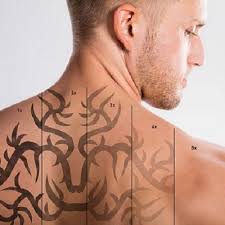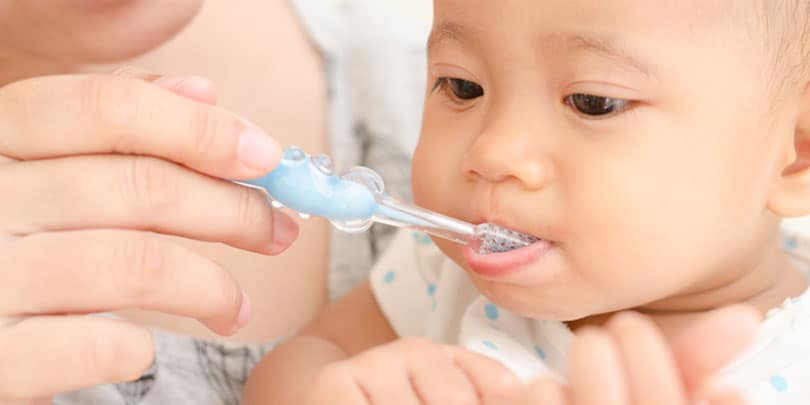Dental care is just as important for babies as it is for adults, even if babies don’t have teeth. Tooth decay is, unfortunately, quite common in babies and toddlers. Hence, parents should follow best practices to ensure good oral care for their baby even before the baby’s teeth come in. This sets the tone for your child to take care of their teeth from an early age.
But how can you do this? Keep reading this comprehensive guide for parents to understand infant oral care and how to clean a baby’s mouth.
Why Is Baby Oral Care Important?
You might be wondering why oral care for babies is so important. Good oral care habits help ensure the healthy development of your baby’s teeth and gums. Regular cleaning and care can help prevent problems like tooth decay and gum disease, which can affect your baby’s overall health and well-being. Besides this, the first set of teeth in babies helps form the shape of their face, allows your child to chew and eat easily, and allows for the healthy growth of permanent teeth when they are older.
Cavities can develop in a baby’s mouth due to different feeding habits. Sugar consumption via food, pacifier, or drinks can lead to cavities. Other than this, habits like sleeping with a bottle full of milk, sleeping with a pacifier that has been dipped in honey or sugar, or giving sugary food to children can all increase the risk of tooth decay.
Even before the baby’s first tooth comes in, parents must start practicing oral hygiene for babies.
Tips for Good Oral Hygiene for Babies
Here are some of the best practices for oral hygiene to follow for your infant. Practicing these will prevent your child from developing tooth decay, related problems, or diseases.
Clean the Gums
When your baby’s teeth have not come out yet, you should still clean their mouth and gums, specifically after feeding them. This will remove any sugar, milk, or remnants of food from their mouth. You should use a wet washcloth and gently wipe it on their gums. You can also opt for a Pigeon Baby Tooth and Gum Wipes specially formulated for babies 6 months and older with 100% food-grade ingredients and not containing any fluoride, making it safe when swallowed.
Doing this from an early age will allow your child to get into the habit of cleaning their mouth. This way, they won’t fuss over future oral practices like brushing their teeth and flossing.
Provide Care During Teething
Between the months of 3-9, your baby may begin teething. You can tell if your child is teething when they begin to drool excessively, have a low fever for a couple of days, and are fussier than usual.
The teething process can be quite uncomfortable and often painful for your baby since their gums are sore. You can ease their pain by gently rubbing or massaging their gums with clean fingers. You can also give them a clean, cold teething ring to chew on.
Start Brushing When the First Tooth Comes In
When the first tooth comes in, it’s time to start caring for it. You should get fluoride-free toothpaste for your child to ensure safety if they swallow it. Pigeon has a wide range of fluoride-free toothpaste formulated for babies, and they also have different flavors.
Additionally, you should get a small-sized toothbrush that can easily fit in your baby’s mouth and has soft bristles. You should brush your baby’s teeth in circular motions twice a day and be sure to clean all sides of the tooth and the gums. If your baby has multiple teeth, you should consider flossing. Use a very tiny amount of toothpaste for babies.
Take Your Child for an Oral Examination
When your child’s first tooth comes in, you should take them for their first dental visit. Ideally, you should take your child for their first oral examination before their first birthday. The dentist will take a look at your child’s gums and teeth. They can also provide detailed guidance on your baby’s oral hygiene regimen.
Know When to Stop Using Pacifiers and Thumb Sucking
Up until the age of three, using pacifiers and a thumb-sucking habit is harmless for your baby. However, you should discourage these habits after that age since they can alter your baby’s permanent teeth.
Encourage Your Child to Brush Their Teeth
You should guide your child to brush their baby’s teeth, but once they turn older, such as 6-18 months, you should encourage them to brush their teeth. At this point, you should invest in a soft toothbrush that allows your child to independently brush their teeth. Most children may not be able to clean their teeth thoroughly by themselves. Therefore, parents need to perform the finishing step with a finishing toothbrush to ensure a complete clean.
Pigeon baby products in Singapore have a wide variety of oral care accessories that parents can start using from an early age. They also have special toothbrushes for toddlers that have been co-developed with leading dentists and experts.
Final Words
Oral hygiene plays an important role in your child’s life from the earliest age. Developing these habits as early as possible will ensure a healthy mouth for your child and prevent tooth decay.
I like to read and write about current affairs, investment opportunities and health related topics.

















































































































































































